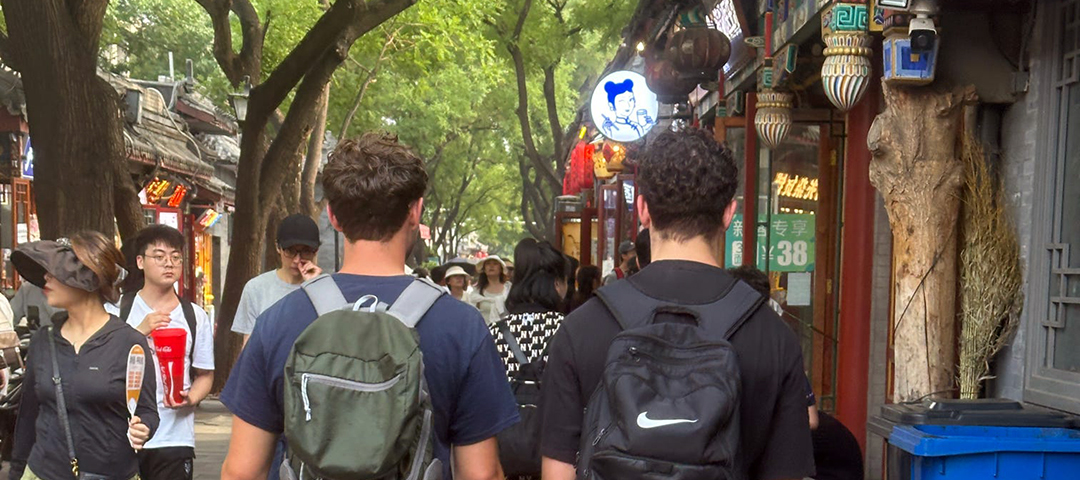
Opening Doors for Church Growth: The Power of Short-Term Missions with BMA Global
September 2, 2025
Short Term Mission, Long Term Vision
September 16, 2025By Dr. Jenni Johnson, Missionary to a Creative Access Nation
I once heard short-term mission trips described as well-meaning Christians parachuting into a foreign context, only to bungee jump out before they can do any real work. We have all heard stories of cultural gaffes—such as wearing the wrong footwear, using humor that does not land well, or making promises that team members cannot keep. While examining how we approach any ministry critically is fair, I am not ready to throw the proverbial baby out with the bathwater just yet.
Having been involved in short-term missions for over 25 years, I believe there is still a place for short-term work in global evangelism and discipleship. While I think much of the success of short-term trips depends on how long-term missionaries utilize teams as a resource for their ministry—a topic for another day—what interests me most is how participants return home after the trip. As much as we prepare for fundraising and pray before departure, we must also prepare for re-entry. Over the years, I have observed four types of returners. Before you board that plane, consider how you might come back.
Type 1: The Appreciator
The Appreciator sees everything through the lens of home culture affluence. They return home grateful for conveniences like ice and air conditioning, feeling “blessed” to have been born “here” rather than “there.” The challenge for the Appreciator is to balance gratitude with a deeper understanding that modernity and political systems come with trade-offs and that “better” is often a matter of perspective. Assuming our lives are inherently better back home would be un-useful and unwise. The Appreciator needs to be thoughtful about how they speak of or portray images of their trip that honor the humanity and dignity of the people they serve.
Type 2: The Goer
The Goer never truly unpacks. They are ready for the next trip before the last one ends. Research shows that most long-term missionaries first experienced missions on a short-term trip. That was certainly the case for us.
However, Goers must guard against idealizing their experiences. This returner risks oversimplifying life abroad, turning their trip into an unrealistic honeymoon experience. They may not realize that missionaries, like short-term goers, spend time running errands and scrolling through social media: it is not all roses and revivals. Unrealistic expectations about life on the mission field can lead to burnout if they eventually move abroad.
The Goer can also grow frustrated with friends and family who seem unchanged by their stories from the field, forgetting that their increased knowledge and grief do not automatically translate to others. Before their next trip, they must check their motives—are they driven by adventure, pity, or a genuine calling? And will they be as empathetic to their neighbors in the pews at home as they are to locals on the field?
Type 3: The Supporter
The Supporter catches a vision for missions and becomes a passionate advocate and cheerleader for the global cause of Christ. The Supporter may never go on another mission trip, but they champion church mission initiatives, lead fundraising efforts, and encourage others who do go. They recognize their past indifference or prejudice toward people different from them and commit to serving, praying, and giving—abroad and at home. They often connect with internationals in their community and open their homes and hearts to others in need.
However, Supporters must temper their zeal. Not everyone in their church and family will share their enthusiasm, which can lead to frustration or bitterness. Instead, they can become voices for justice in their families and communities, even when it feels like crying out in the wilderness. The key is perseverance—a lifetime of never giving up.
Type 4: The Cynic
This returner is the one that breaks my heart the most. I have ministered on mission trips alongside teens and young adults, only to see them abandon their faith years later.
The Cynic struggles with the contradictions they have witnessed—churches that send missionaries abroad while squabbling over trivial matters at home, such as carpet colors or music styles. They can also become overly critical of host missionaries without having a complete picture of life aboard. They begin to ask hard questions like: How can a loving God demand so much from those who have never heard yet tolerate so much division among those who claim His name? Their disillusionment can lead them away from the church, having misplaced their hope in sinners, who will disappoint every time rather than in Christ.
Conclusion
Short-term mission trips often pull back the curtain on the world, revealing beauty and deep brokenness. Once Pandora’s box is open, it cannot be closed. Exposure changes you. You cannot be the same again. The path of sorrow is what we choose when we heed the call to “go therefore.”
Short-term mission trips have a lasting impact on those we serve and those who go. But how we return matters as much as how we prepare to go. Whether you are an Appreciator, a Supporter, a Goer, or a wrestling Cynic, remember this: the trip may end, but the journey of faith and service continues.
Dr. Jenni Johnson serves overseas in a Creative Access Nation in East Asia as an administrator at a local international school. She was a former National GMA president, CBC graduate, and the first coordinator for VSM Team Missions. An Arkansas native, she and her husband, TJ, have been on the foreign field since 2007.

